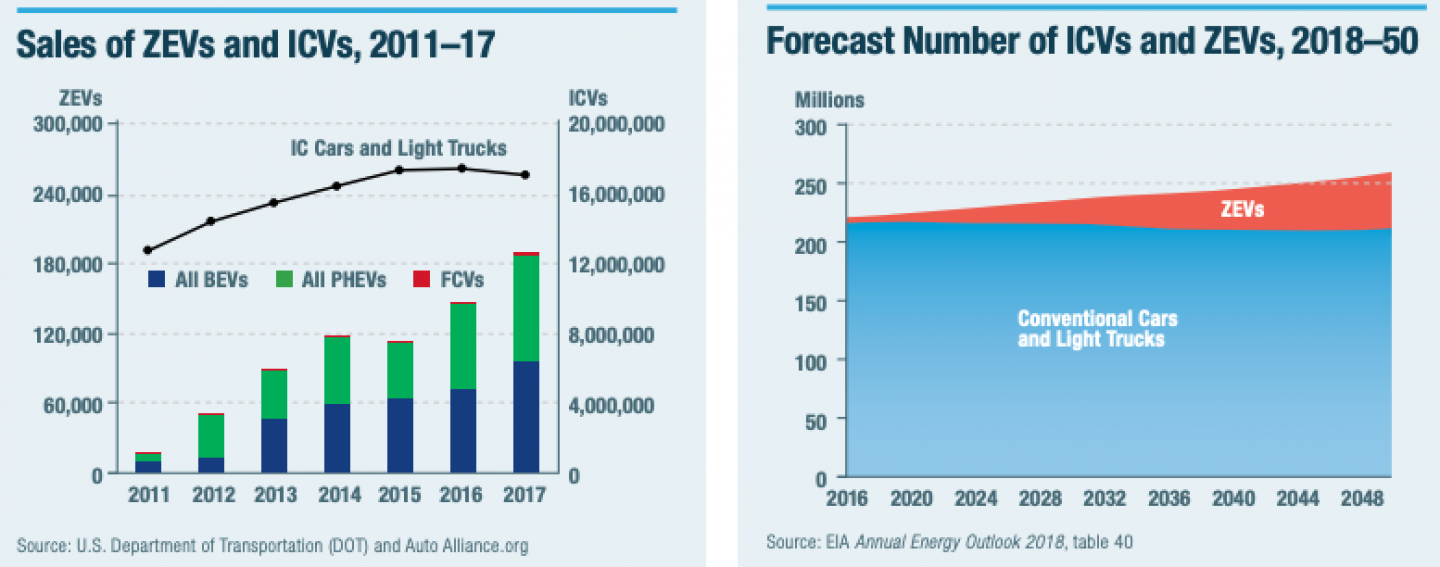Short Circuit: The High Costs of Electric Vehicle Subsidies
Bottom Line: The goal to install battery-powered electric cars has taken hold as a critical environmental objective. Yet this requires billions of dollars in subsidies, tax breaks, and required infrastructure. Given that it is mostly higher-income individuals who purchase electric cars, this goal comes at the expense of the poor. Further, there is sufficient evidence to conclude that electric cars will actually increase greenhouse gas emissions, not reduce them, as compared with the conventional internal combustion engine that now dominates America’s vehicle fleet.
Recently, predictions of the impending demise of internal combustion vehicles (ICVs) have become common. Several countries plan to end ICVs administratively by banning the production and sale of vehicles powered by those engines.
Seeking to displace ICVs, proponents of battery-powered electric car (zero emission vehicle, or ZEV) subsidies argue that the benefits of reduced air pollution and greenhouse gas emissions will far exceed the costs of the subsidies. They further justify the subsidies based on the accompanying positive “network” externalities.
In addition to subsidies, ZEVs require substantial new and expensive infrastructure to be built, such as charging facilities, increasing their costs even more. This means that in order to accelerate the internal combustion engine’s forecast demise, billions of dollars are being spent to support ZEVs.
Indeed, serious questions surrounding the benefits of ZEVs are going largely ignored. Will ZEV programs accomplish their objectives? And at what cost?
A review of the literature finds few cost-benefit studies on these key questions. Moreover, policymakers have rarely examined whether these subsidies are equitable, given that it is mostly higher-income individuals who purchase ZEVs because electric cars are simply too expensive for the average American family.
Finally, the present analysis argues that the environmental and economic benefits of an “electric car revolution” are nonexistent.
Read the full study here.
Sales of Zero Emission Vehicles (ZEVs) vs. Internal Combustion Vehicles (ICVs)

Findings:
- Broad adoption of electric vehicles will increase air pollution and associated environmental costs relative to new internal combustion vehicles.
- The economic value of CO2 emissions reductions associated with electric vehicles is effectively zero.
- Subsidies and the required infrastructure to support electric cars benefit the affluent at the expense of the poor.
- In California alone, the total cost of electric car subsidies, including tax credits and rebates and required infrastructure, is likely to exceed $100 billion.
Read the full study here.




